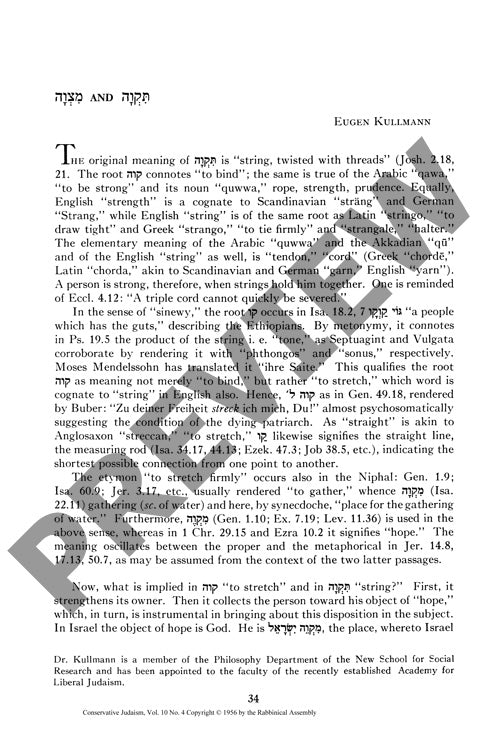Tikvah and Mitzvah
Couldn't load pickup availability
The ancient Hebrew words תקוה (tikvah, "hope") and מצוה (mitzvah, "commandment") share a profound etymological connection that illuminates their intertwined theological significance. Through comparative philological analysis across Semitic languages, including Hebrew, Aramaic, Arabic, and Akkadian cognates, תקוה emerges from a root meaning "string" or "twisted threads," derived from קוה ("to bind" or "to stretch"), with parallels in Arabic "qawa" and Indo-European sources. Biblical passages and linguistic analysis, particularly the documented interchange between emphatic consonants ק and צ in Aramaic dialects, reveal that מצוה shares this foundational meaning of "that which ties together" or "binds." These etymological findings demonstrate how the terms represent complementary aspects of divine-human relationship: מצוה establishes connection from God to Israel through binding commandments that strengthen and collect the individual toward the divine, while תקוה represents Israel's responsive stretching toward God as the object of hope. This unified etymology suggests that commandment and hope function as reciprocal elements in Jewish theological understanding, with מצוה providing the binding structure that enables and consecrates human temporal existence toward eternity.

More Information
-
Physical Description
-
Publication Information
Published 1956
ISBN
-
Publication Credits
Eugen Kullmann

